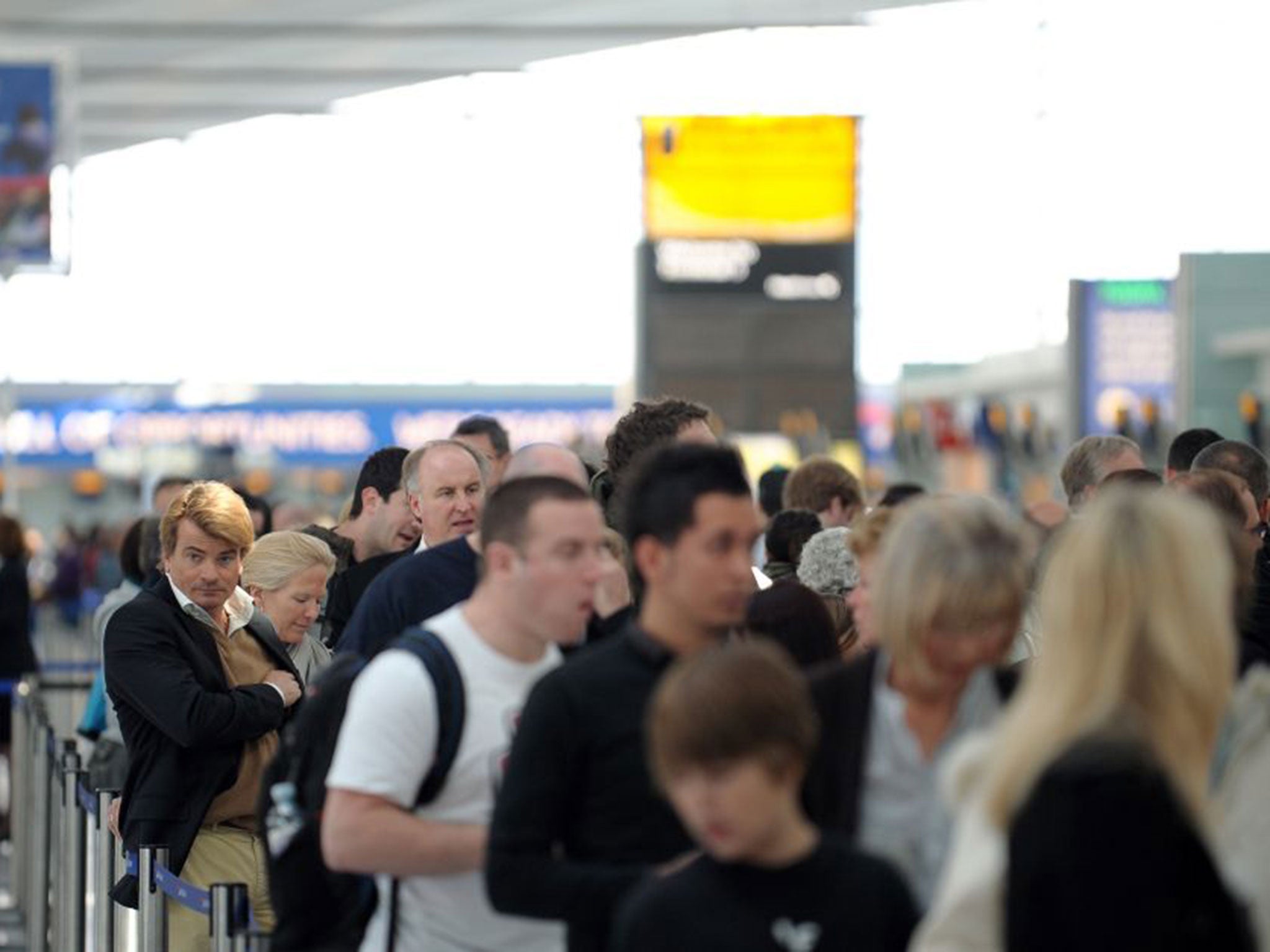Heathrow Airport braced for its busiest ever day for departures
More people will fly out of Heathrow airport on 24 July than on any previous day in its history, with 129,648 passengers expected to take off

Britain’s brittle transport infrastructure faces its greatest test this weekend. The UK’s biggest airport is braced for its busiest-ever day for departures, while drivers heading for the West Country are being warned of delays exceeding two hours on 25 July.
More people will fly out of Heathrow airport on 24 July than on any previous day in its history, with 129,648 passengers expected to take off. The figure represents an average of 130 people departing every minute during operating hours.
With arriving passengers included, Heathrow is expecting its second-busiest day, falling just short of the 246,000 record that was set in May.
The predicted number of arriving travellers at Heathrow will swell by more than 300 because of a flight delayed for almost 24 hours due to disruptive passengers.
A British Airways jumbo jet from Accra missed its departure slot on the evening of 22 July when two passengers insisted on disembarking. The remaining passengers on BA78 are now due to arrive around 5am on 24 July.
A BA spokesperson said: “We are doing everything we can to get our customers to their destinations as soon as possible, and are providing them with hotel accommodation and meals.” The departure on 20 July on the route from West Africa was delayed by 48 hours.
Flights to Abu Dhabi and Delhi are the most likely to be late, according to new figures from the Civil Aviation Authority. Barely two-thirds of services from Heathrow to the UAE and Indian capitals took off on time in the first quarter of 2015, with delays of almost half-an-hour typical; the departures on 23 July to both cities were late.
Most other flights were operating normally at both Heathrow and the other very large UK airports: Gatwick, Manchester and Stansted.
The CAA also reveals that passenger numbers at British airports in the year to March reached the highest ever, topping 244m - one million more than the previous record, which was set just prior to the 2008-09 financial crisis. They were carried on two million flights.
The report will fuel the debate on a new runway in south-east England. London has the world’s busiest single-runway and two-runway airports, in the shape of Gatwick and Heathrow, and both are predicting record summers.
Earlier this month the Airports Commission unanimously favoured a third runway at Heathrow. But the Sussex airport still hopes to persuade the government to overturn Sir Howard Davies’s recommendation. Nick Dunn, Gatwick’s Chief Financial Officer, said: “We are the only airport to serve all business models - full service, low cost and charter.”
Many holidaymakers hoping to avoid airport delays by staying in the UK are facing problems. Highways England is warning of severe congestion on routes to Devon and Cornwall on 25 July, with only motorists leaving very early in the morning or late in the day likely to escape long delays.
The organisation has launched an online service - whentoleave.trafficengland.com - devoted to drivers going to the South West. It shows an expected delay of up to two hours for those leaving London between 8am and 11am, while motorists from the Midlands setting off between 10am and noon face even longer waits.
Drivers from Birmingham can keep delays to the West Country below 20 minutes only by leaving before 5am or after 6pm.
Motorists heading for France through the Channel Tunnel faced a wait of over two hours at Eurotunnel’s Folkestone terminal, due to what the company described as “overnight migrant activity”.
Eurostar passenger train services to Paris and Brussels were unaffected, though travellers to the Belgian capital on 25 July with onward rail connections face problems because of a strike by train drivers.
At Dover, delays on ferries of between one and two hours to Calais were reported. Staff are gearing up for the most serious test so far of exit checks, which were introduced by the government in April. There are fears that queues for passport inspections could snowball.
For anyone who makes it across the Channel, French authorities are warning that next weekend will see “extremely difficult” conditions for motorists heading south from Paris to the Mediterranean; 1 August is expected to be the worst day of the year for traffic.
Passengers using Britain’s busiest railway station, London Waterloo, faced problems from early afternoon to the close of services on 23 July because of a signalling problem that could be fixed only when no trains were running. Travellers on South West Trains were warned to expect delays, with some trains starting or ending at other stations to reduce congestion at Waterloo.
Long-distance rail services in Britain are mostly running normally over the weekend, except for planned engineering work on the main Great Western line from London to Bristol. The electrification project for the route involves the lowering the track level in Box Tunnel near Bath. Trains are being routed either north via Bristol Parkway or south via Trowbridge, with fewer services and extended journey times.
Join our commenting forum
Join thought-provoking conversations, follow other Independent readers and see their replies
Comments
Bookmark popover
Removed from bookmarks